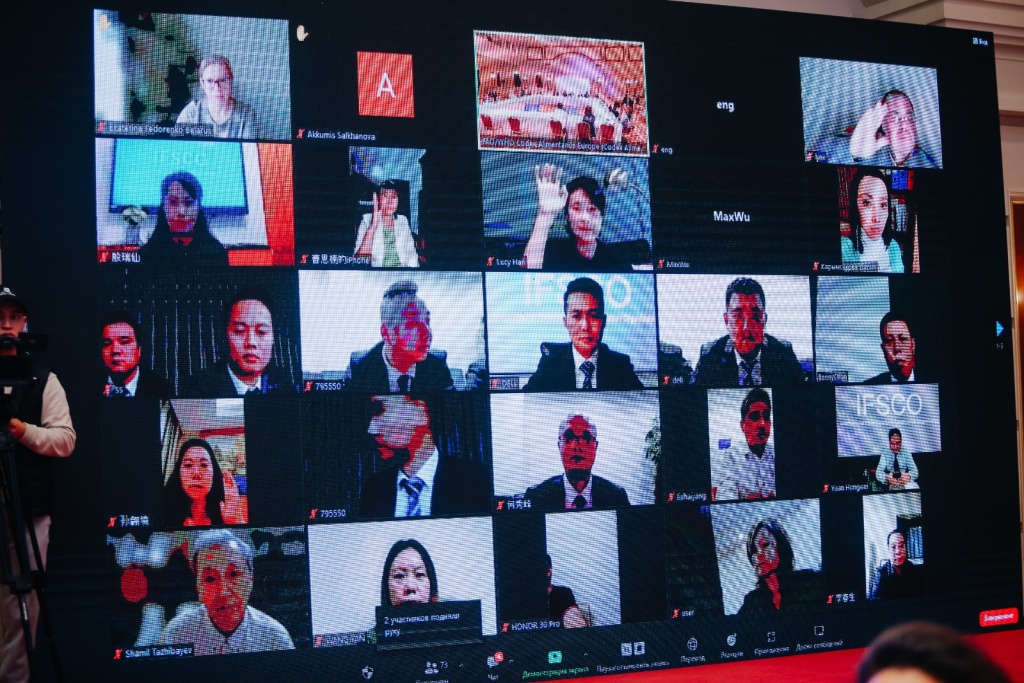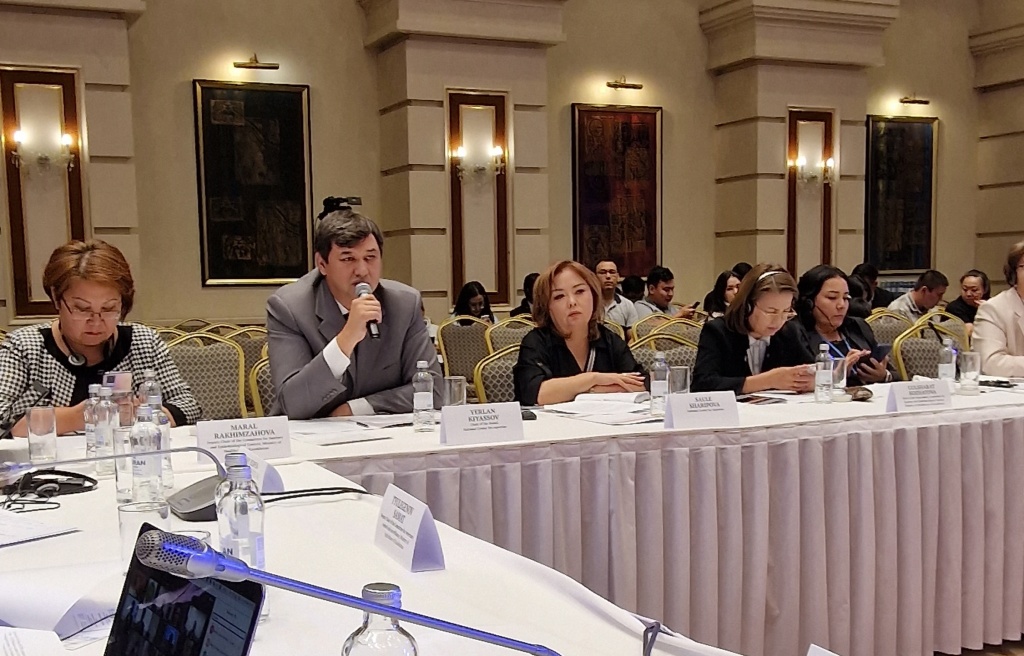Order a callback


Order a call

Order a service
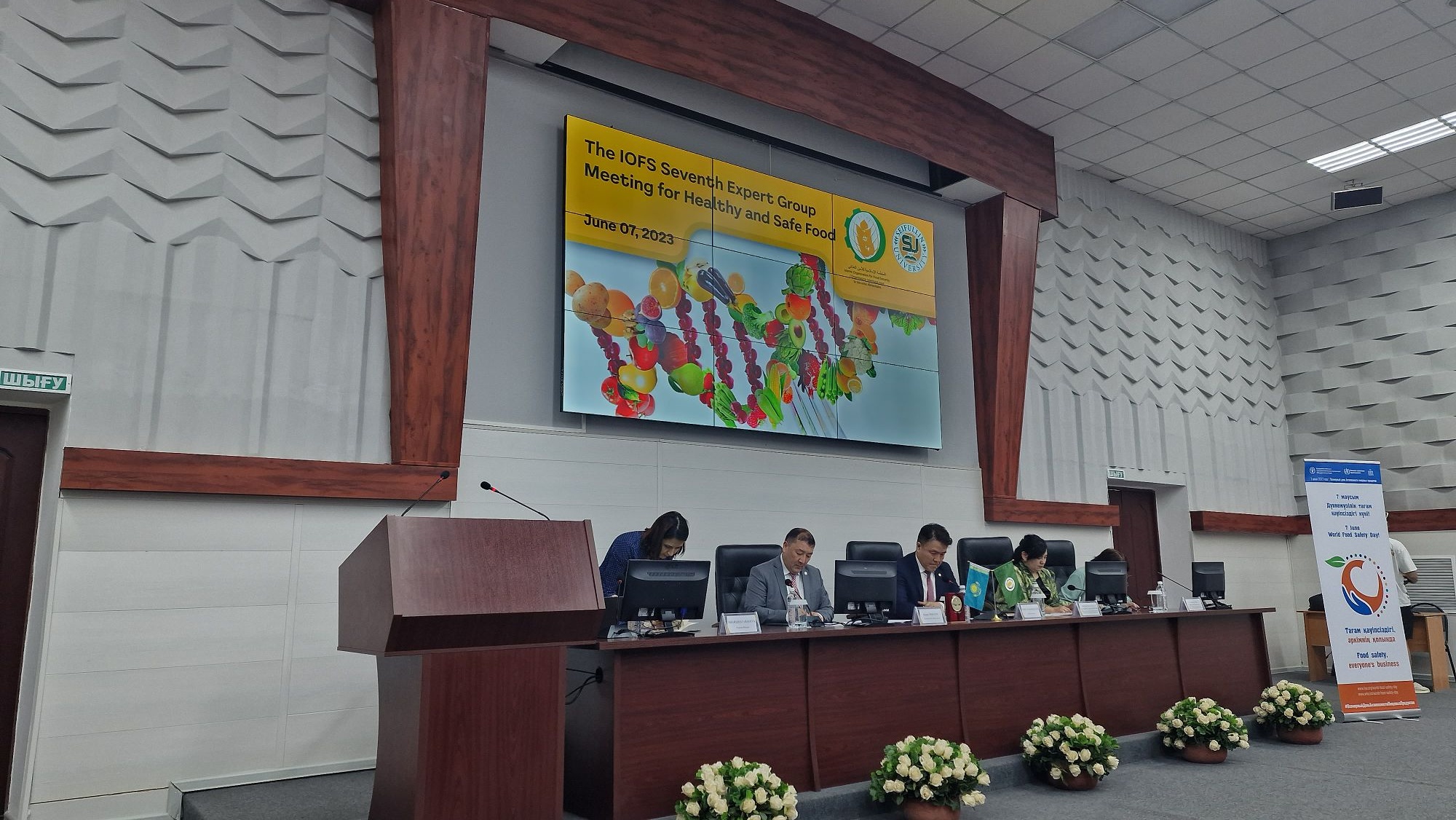
The Codex Alimentarius Group participated in the Islamic Organization for Food Security (IOFS) Seventh Expert Group Hybrid Meeting on Healthy and Safe Food. The meeting was arranged by the Islamic Organization for Food Security and the Kazakh Agro University named after S. Seifullin. The Rector of KazAtu, academician of the National Academy of Sciences of the Republic of Kazakhstan Tireuov KM, general director of IOFS E. Baidaulet, Ministry of Agriculture, professors of the universities of Iran and Pakistan made a welcoming speech.
In frame the plenary session, presentations were heard and discussed on the IOFS methodology for the inclusion of non-Tayyab food products, the traceability system, advanced blockchain capabilities for traceability from “gene to fork”, the role of food safety in education and science, the potential and barriers in the export of Kazakhstani food products, food hygiene in Jordan, dehydration issues and technologies in Pakistan, strengthening the food safety of poultry meat through the training of teachers and students of the University of Arkansas, USA. The experience of such training programs will be introduced in KazAtu named after S. Seifullin.
Dr., Professor Karsybekova Nailya made a presentation on the Codex Alimentarius Commission. Experience of Kazakhstan.
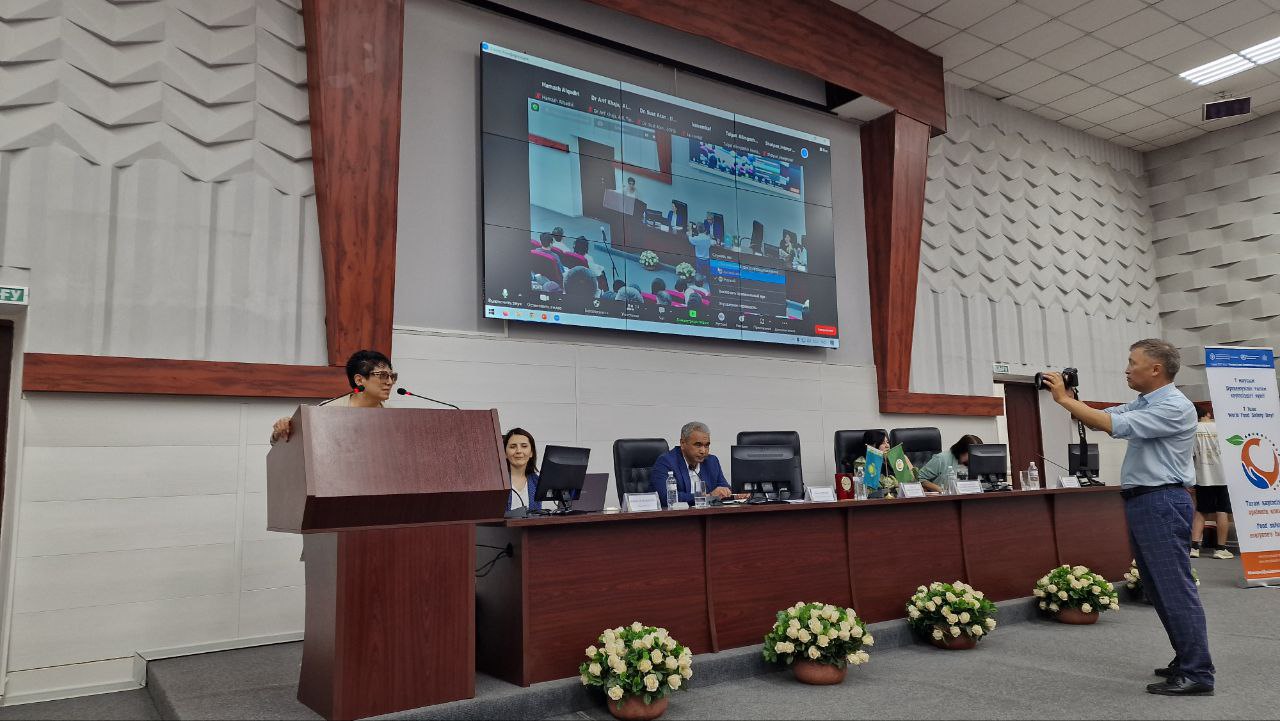
THEME 2023 - "Food standards save lives"
Food supply chains involve several people: producers, processors, transporters, distributors, retailers, cooks as well as consumers.
At every point in the chain, there are hazards that can cause contamination. Everyone involved at the various stages has a responsibility to keep food safe.
There are five calls to action on World Food Safety Day:
1. Ensure it’s safe - Governments must ensure safe and nutritious food for all
2. Grow it safe - Agriculture and food producers need to adopt good practices
3. Keep it safe - Business operators must make sure food is safe
4. Know what’s safe - Consumers need to learn about safe and healthy food
5. Team up for food safety – Let’s work together for safe food and good health!
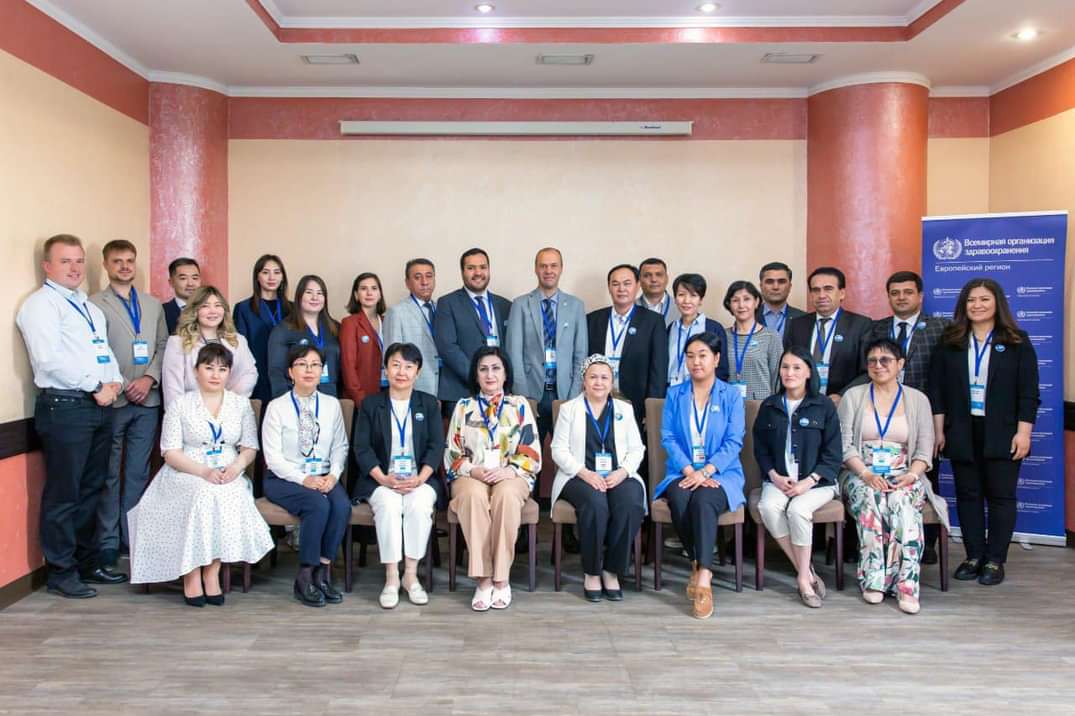
May, 24-25, 2023, the INFOSAN Secretariat, FAO and WHO European Offices held the Sub-regional Workshop on Rapid Information Exchange during Food Safety Emergencies in Central Asia in Almaty, Kazakhstan.
The delegations of Kazakhstan, the Kyrgyz Republic, Tajikistan, Turkmenistan and Uzbekistan were represented by specialists from the sanitary and epidemiological services of the countries. Codex Alimentarius Group, specialists of the Scientific and Practical Center for Sanitary and Epidemiological Expertise and Monitoring of the National Public Health Center of the Ministry of Health of the Republic of Kazakhstan, the Kazakh Research Institute of Plant Protection and Quarantine named after Zh. Zhyembayeva took part as observers.
The trainers of the workshop were experts from the Regional Offices of FAO and WHO, the INFOSAN Secretariat. Experts from the International Standards Agency of Great Britain and responsible person for INFOSAN in Turkey shared their experience.
Country delegations presented food safety emergency response systems at the national level. The delegations took part in simulation sessions, discussed the problems of interdepartmental implementation of emergency response and ways to solve them, and also got acquainted with the work of the INFOSAN Community website.
Thus, the workshop held with the participation of the Central Asia countries showed the initial status of emergency response systems in the field of food safety, problems and ways to solve them.
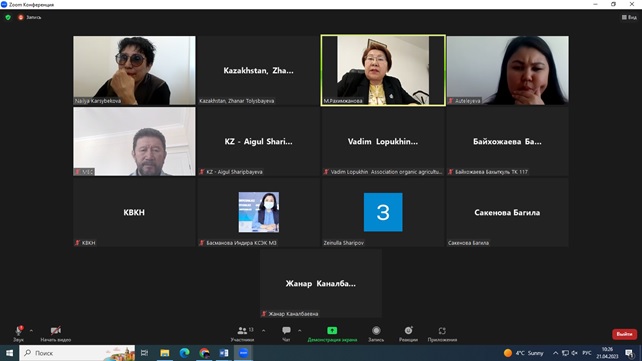
April 21, 2023, a meeting of the Interagency Coordinating Council (ICC) on the issues of the Codex Alimentarius was held. Members of the Council honored the memory of a member of the ICC, Professor Dalenov E.D. The Chairman welcomed the new member - Bukeeva Zh., Deputy Director of the Research Institute of Preventive Medicine named after Dalenov E.D. at the Astana Medical University.
Professor Karsybekova N. reported the activities of the Codex Alimentarius Team for the 1st quarter (January-March) 2023. The members of the Council were informed about the work with the CSEC of the Ministry of Health of the Republic of Kazakhstan, the Codex Committees, advisory assistance to neighboring countries, as well as meetings and events with partners and stakeholders, including AMR.
Further Dr. Karsybekova N. provided information on the proposal for the official register of national food safety experts. The document was discussed among the members of ICC. A round table was held on the rationing of trans fats and countermeasures against AMR within the framework of cooperation with the Coordinating Center for Technical Regulation of the KTRM MTI RK.
Chairman Rakhimzhanova M. proposed to discuss the priority Codex Committees for the RK. Their is the need for training in sampling on assessing the organoleptic properties of products. Professor KAZATU Maykanov B. informed the members of the Council about the availability of paid courses on this topic.
Prof. Karsybekova N. noted that the Codex Alimentarius Team currently works as the staff of the National Center of Expertise, Department of Strategic Development and International Cooperation.
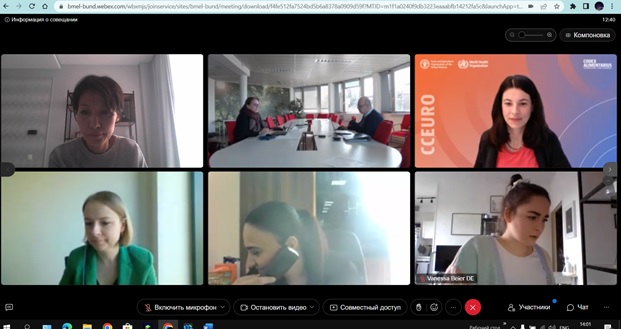
April 14, 2023, CCCF’16 pre-session meeting was held in online mode for delegates from the European region, chaired by Germany as the coordinating country. Azerbaijan, Great Britain, EU, Kazakhstan, Norway took part in the meeting.
The discussion took place on the following documents:
- Maximum levels for lead in certain food categories. Countries agreed to the proposed ML for lead in sugar. However, regarding to ready-to-eat meals for infants and young children, it was supported that children are more vulnerable consumer group, ingredients of these products should be selected to ensure the lead content is as low as reasonably achievable.
- Sampling plans for total aflatoxins in certain cereals and cereal-based products including foods for infants and young children. The EU proposes a single criterion for the LOQ (limit of quantitation) among the four aflatoxins (B1, B2, G1 and G2), as they use the same method of analysis. Kazakhstan added that all possible measures should be taken during sampling and preparation for testing to prevent any changes in the aggreged sample that could affect the content of analyzed mycotoxins in the sample.
- Maximum level for total aflatoxins in ready-to-eat peanuts and associated sampling plan. In the countries of the European region, nuts are not produced on an industrial scale. The occurrence data of aflatoxin total in ready-to-eat peanuts should be provided with analytical results from the different important peanut producing countries in the world.
- The prevention or reduction of ciguatera poisoning. It is necessary to create and develop a discussion paper within the framework of establishing an Electronic Working Group (EWG). It was announced that the EWG will be led by the European Union, Sweden and Spain.
- Forward work-plan for CCCF: Review of staple food-contaminant combinations for future work of CCCF. It’s decided to support Option 1 for follow-up, i.e. continuation of this work through the EWG.
April 4, 2023, the Round Table “National and international regulation of trans fat acids (TFAs) and residual veterinary drugs in food products” was held in a hybrid mood. On behalf of the Chairman of the Committee for Sanitary and Epidemiological Control (CSEC) of the Ministry of Health of the Republic of Kazakhstan, the participants were welcomed by the representative of the Committee. Interested enterprises, territorial departments of the CSEC MoH of RK, the Ministry of Agriculture of RK and others took part. The topic of the event aroused keen interest and, unfortunately, due to the limitation in connection of 100 people, not everyone could join.
The issue of TFAs regulating in oil and fat products began with the report of the Deputy Head of the Coordination Center for Technical Regulation of the RSE “Institute for Standardization and Metrology” Razzarenov A. The speech covered the standardization and TFAs regulation in the Republic of Kazakhstan and the EAEU. Codex contact point of RK Tolysbayeva Zh. provided information on the medical aspects of TFAs consumption, as well as work on TFAs within the Codex subsidiary bodies. Nevzorov K. continued the topic with a presentation “Natural and industrial trans-fatty acids”.
The second part of the Round Table was devoted to the problems of rationing the residual amounts of veterinary drugs in livestock products. A National Coordinator for Codex Alimentarius, Professor Karsybekova N. spoke about the meaning of a “silent pandemic” of antibiotic resistance, highlighted the consequences of the thoughtless use of antibiotics in medicine, veterinary medicine and the food industry.
Further Razzarenov A. informed the participants of the Round Table about the current situation regarding the rationing of residual quantities of veterinary drugs in products of animal origin. In turn, the Contact Point of the RK for INFOSAN and RASFF Sharipov Z. elaborated on the work of the Codex Alimentarius Commission on food-borne AMR.
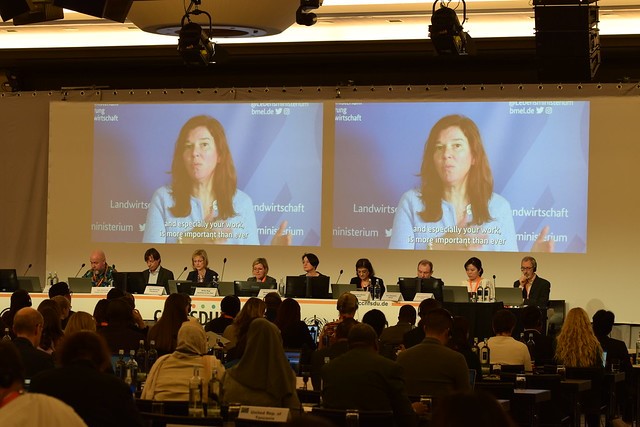
March 7-10, 2023, the 43rd session of the Codex Committee on Nutrition and Foods for Special Dietary Using was held physically. The Session was attended by 60 Member Countries, one Member Organization and 29 Observer organizations.
The following issues have been considered at the session:
The report was adopted by the Committee on March 15, 2023 and posted on the Codex website.
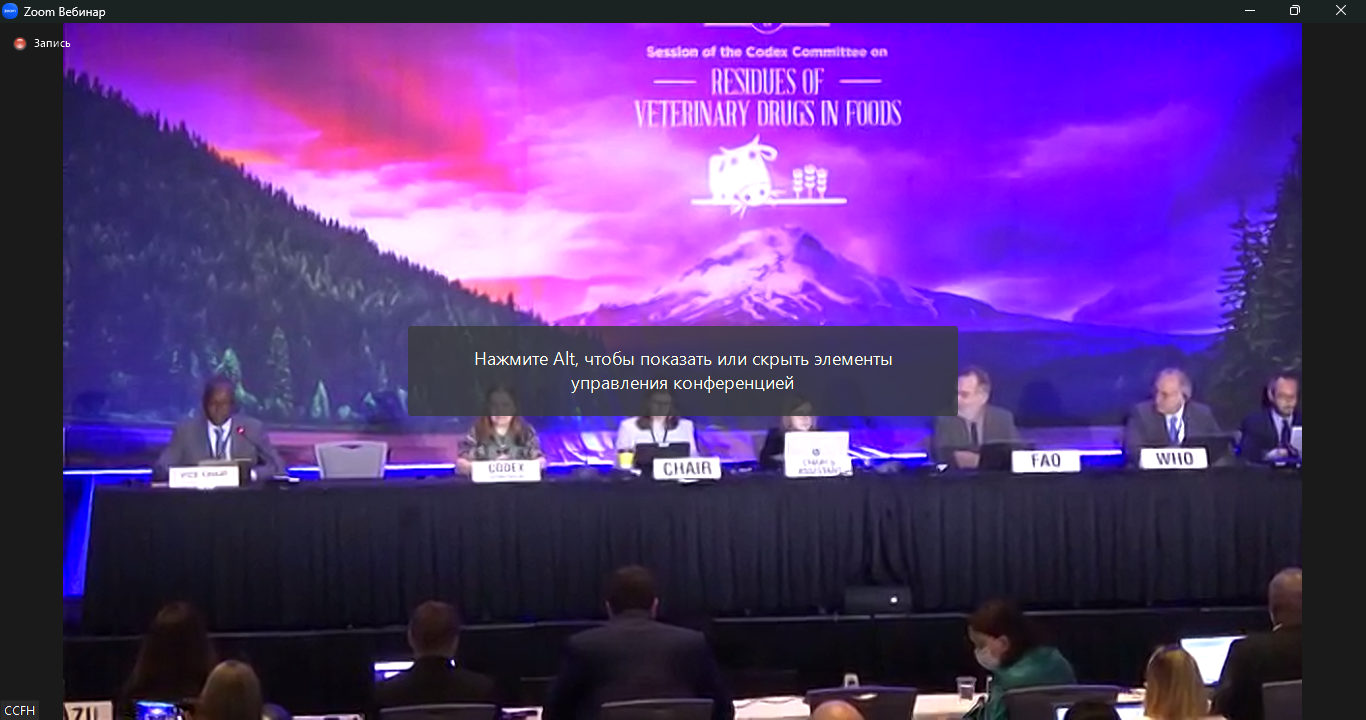
The Codex Committee on Residues of Veterinary Drugs in Foods (CCRVDF) held its 26th Session, in Portland, Oregon, United States of America, from 13 to 17 February 2023. The event was attended by representatives of 49 countries and 6 observer organizations. The following issues were discussed.
The above issues are of interest to Kazakhstan with regard to the approaches, criteria and procedures used in establishing MRLs, as well as current food safety trends and directions.
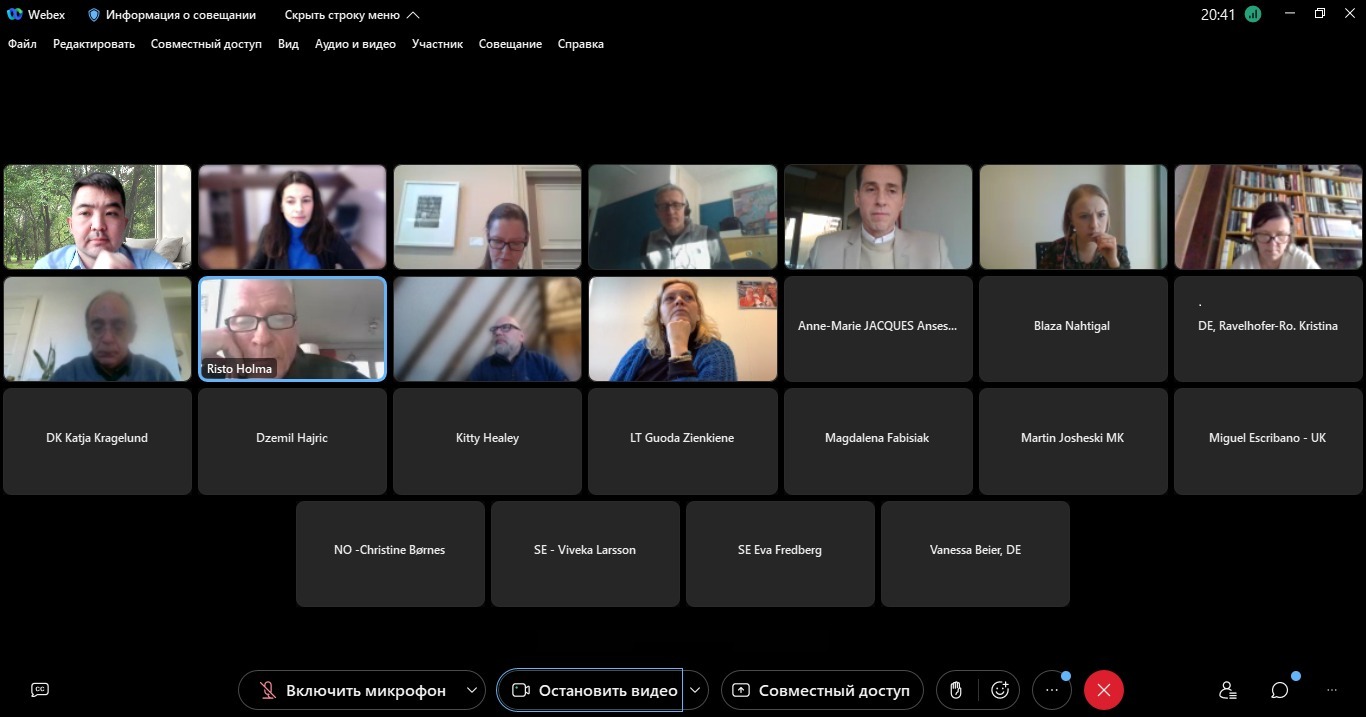
On February 6, 2023, an online pre-session meeting of the Codex Coordinating Committee for Europe (hereinafter – CCEURO) was held. The pre-session discussed items on the agenda of the 26th session of the Codex Committee on Residues of Veterinary Drugs in Foods (hereinafter – CCRVDF).
This was the first event hosted by Germany as CCEURO Regional Coordinator after Kazakhstan's chairmanship. The meeting was moderated by Germany Codex Contact Point – Chair Anne Beutling and attended by 20 representatives from countries in the European Region.
The European Union noted that it does not support the adoption of the proposed maximum residue limits (hereinafter – MRLs) for ivermectin. The MRLs for ivermectin for pork, sheep and goats proposed in the 94th report of the Joint FAO/WHO Expert Committee on Food Additives (hereinafter – JECFA) are higher than previously recommended levels given in the 88th JECFA report. At the same time, the MRLs for pork and for liver and kidney of sheep and goats are lower than those in the European Union.
The CCRVDF session will be held in a physical format for the first time since COVID restrictions in Portland, Oregon, USA. It is possible to participate in the WEB-broadcast mode without the right to make comments. Link to the 26th session of the CCRVDF https://www.fao.org
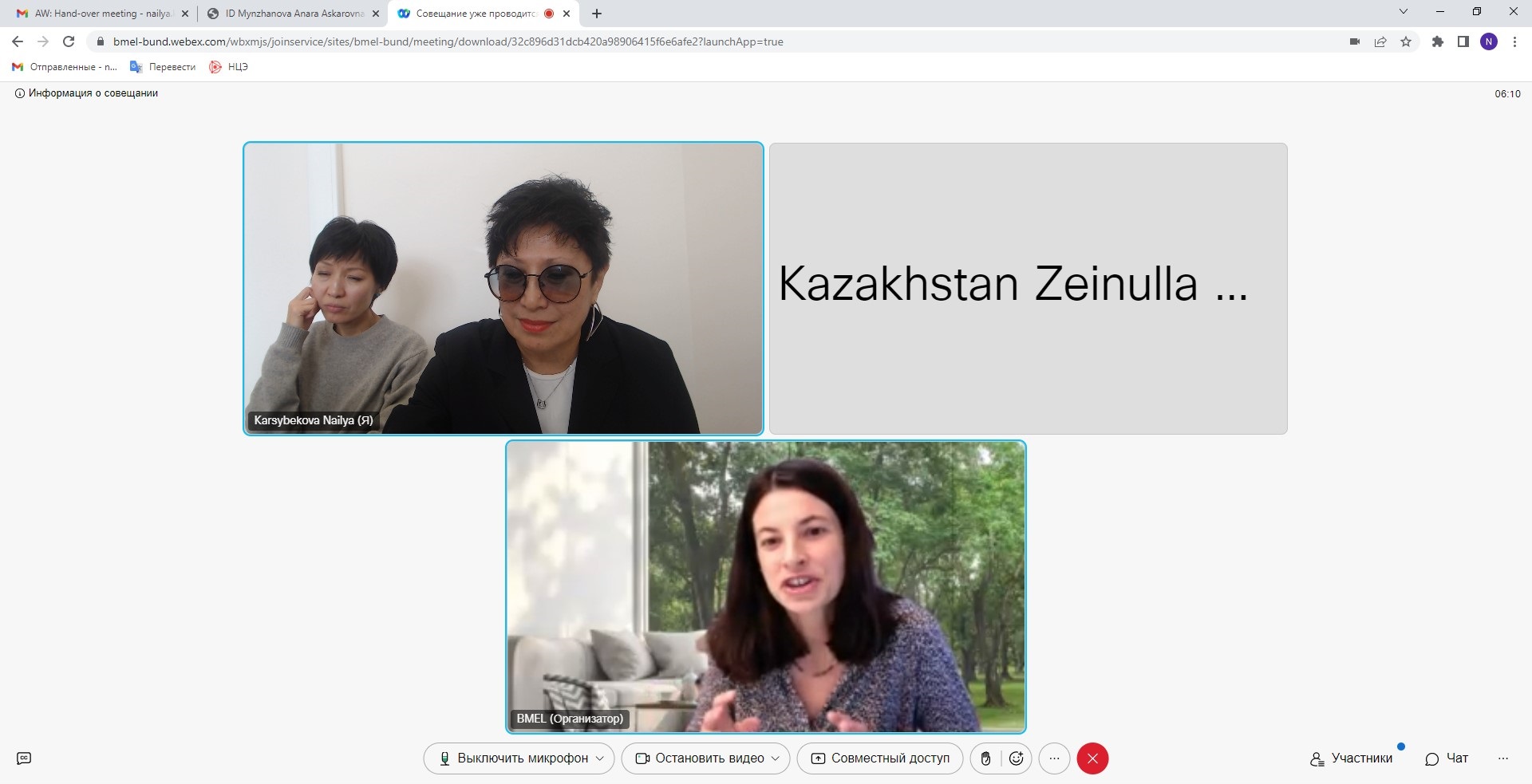
As you know, from January 1, 2023, the chairmanship of the FAO/WHO Coordinating Committee for Europe (CCEURO) of the Codex Alimentarius Commission will pass from Kazakhstan to the Federal Republic of Germany.
On October 19, 2022, an online meeting of the Codex Alimentarius Group of Kazakhstan with the Codex Contact Structure of Germany was held. The main issues included on the agenda were the lessons learned and experience gained in Kazakhstan's chairmanship of CCEURO, as well as discussion of the implementation of future plans.
Kazakhstan shared information on interaction with post-Soviet countries and their Codex of contact points for the period of two-time CCEURO chairmanship from 2017 to 2022. Approaches to improve the involvement of all CCEURO members in achieving the goals and objectives were discussed.
Germany provided information on ongoing work in preparation for the Global Forum for Food and Agriculture (GFFA) in January 2023.
The parties also discussed the vision for the implementation of the Support Measures for the implementation of the Activities to be implemented in the European Region in 2022-2023 under the Codex Strategic Plan 2020-2025, approved at the 32nd session of CCEURO.
Further collaboration with the Codex Trust Fund Secretariat, the FAO and WHO regional offices, and other Regional Coordinators and the Chair and Vice-Chairs of the Codex Alimentarius Commission was considered.
At the request of the Codex Contact Structure of Germany, Kazakhstan shared additional materials, presentations that were used during working visits to post-Soviet countries
An agreement was reached within the upcoming 45th session of the Codex Alimentarius Commission (from November 21 to December 13, 2022) to hold a physical meeting of the Codex of Contact Points of all post-Soviet countries with the Federal Republic of Germany.
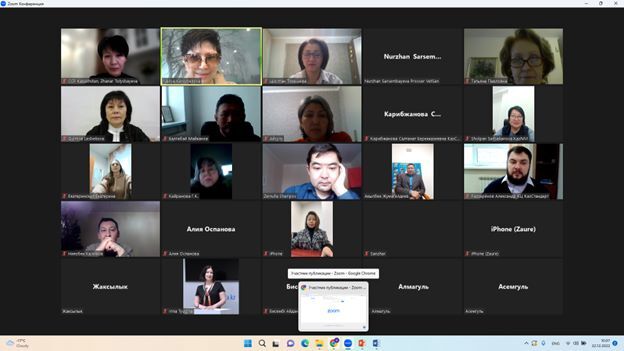
Kazakhstan Codex team held a review workshop on Codex Alimentarius issues on December, 22 2022.
Considered ministries, agencies, universities, business operators took part in this workshop.
Kazakhstan Codex team informed on Codex Alimentarius Commission structure, online codex tools, online commenting system, EWGs.
There was a lively discussion among workshop participants about the role and benefits of using Codex standards. The participants of the workshop spoke in favor of holding such seminars on a regular basis with the involvement of young employees. University professors spoke in favor of holding lecture courses, seminars with the participation of the Codex Alimentarius Team. The wish was expressed for a stable sustainable activity of Kazakhstan Codex Team in future.
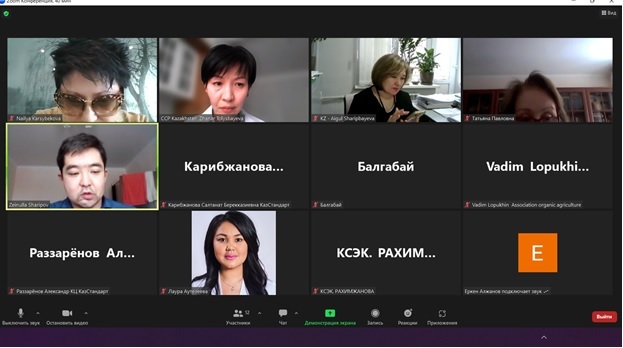
A regular meeting of the Interagency Council was held under the chairmanship of the Deputy Chairman of the Sanitary and Epidemiological Control Committee of the Ministry of Health of the Republic of Kazakhstan Rakhimzhanova M. The report of Professor Karsybekova N. was presented on the activities of the Codex Alimentarius Group for October-December 2022Э
Food hygiene experts Tolysbayeva Zh. and veterinary/phytosanitary Sharipov Z. reported on the work with national experts, the results and conclusions of a survey conducted among national experts on the topic of work on the Codex Alimentarius and within the framework of the relevant Committees supervised by them.
The Deputy Chairman of the CSEC proposed to schedule the next meeting of the Interagency Council to review the priority profile Committees of the Codex, as well as to determine the standards for products that are of interest to manufacturers of imported products, to bring them to the indicators of the Codex standards.
Deputy Head of the Coordination Center for Technical Regulation of the Committee for Technical Regulation and Metrology of the Ministry of Trade and Integration of the Republic of Kazakhstan Razzarenov A. offered cooperation in the framework of work with experts. The Coordinating Center has now assembled a professional team of expert analysts.
Director of the Department of Strategic Development of the RSE on the REM "National Center of Expertise" Alzhanov E. presented the vision of the work of the Codex Alimentarius Group for 2023-2025. at the National Center of Expertise. It is planned to include the Group in the staff of the enterprise to work in the sector of international cooperation and expand their functionality.
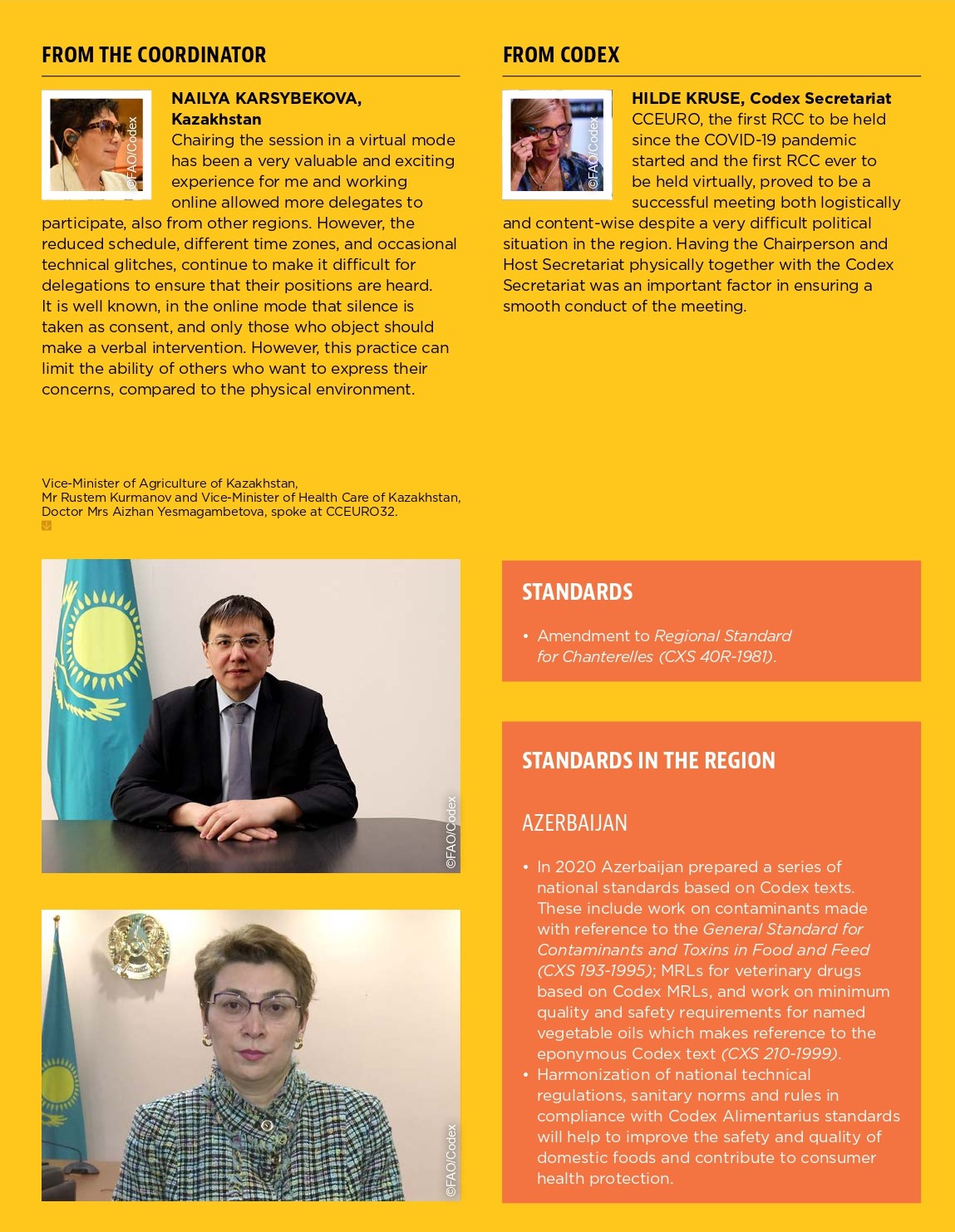
The Codex website hosts the annual digital edition of the Codex magazine for 2022. The magazine tells the major activities that have taken place from CAC44 to CAC45, through which CAC45 has been able to set over 20 standards that protect consumer health and facilitate trade.
The page 39 of the digital magazine is dedicated to the European region, there are photos of the Vice Ministers of Health Esmagambetova A. S. and Agriculture Kurmanov R. Zh., who delivered a welcoming speech at the 32nd session of CCEURO.
The main topic of CCEURO’32, chaired by Kazakhstan, was defined as “Sustainability of food systems and the role of Codex”. During the discussion, it was agreed that sustainability depends in part on cooperation and information sharing on emerging food safety issues in the region and that the One Health approach is an integral part of a sustainable, food and secure world. Other current and emerging issues were also discussed, including food fraud, which was the subject of a CCEURO side event, the COVID-19 pandemic, changing consumer demand, and emergency food safety strategies.
Regarding regional standards, CCEURO32 agreed to amend the text in the regional standard for chanterelles (CXS 40R-1981).
Azerbaijan has prepared a short summary of work under Codex. Thus, in 2020, Azerbaijan prepared a series of national standards based on the texts of the Codex. These include work on contaminants done with reference to the General Standard for Contaminants and Toxins in Food and Feed (CXS 193-1995); The MRLs for veterinary drugs are based on the Codex MRLs and are working on minimum quality and safety requirements for named vegetable oils which makes reference to the eponymous Codex text (CXS 210-1999).
The publication of the digital magazine has already become an integral tradition in the period of information technology on the eve of Codex sessions.
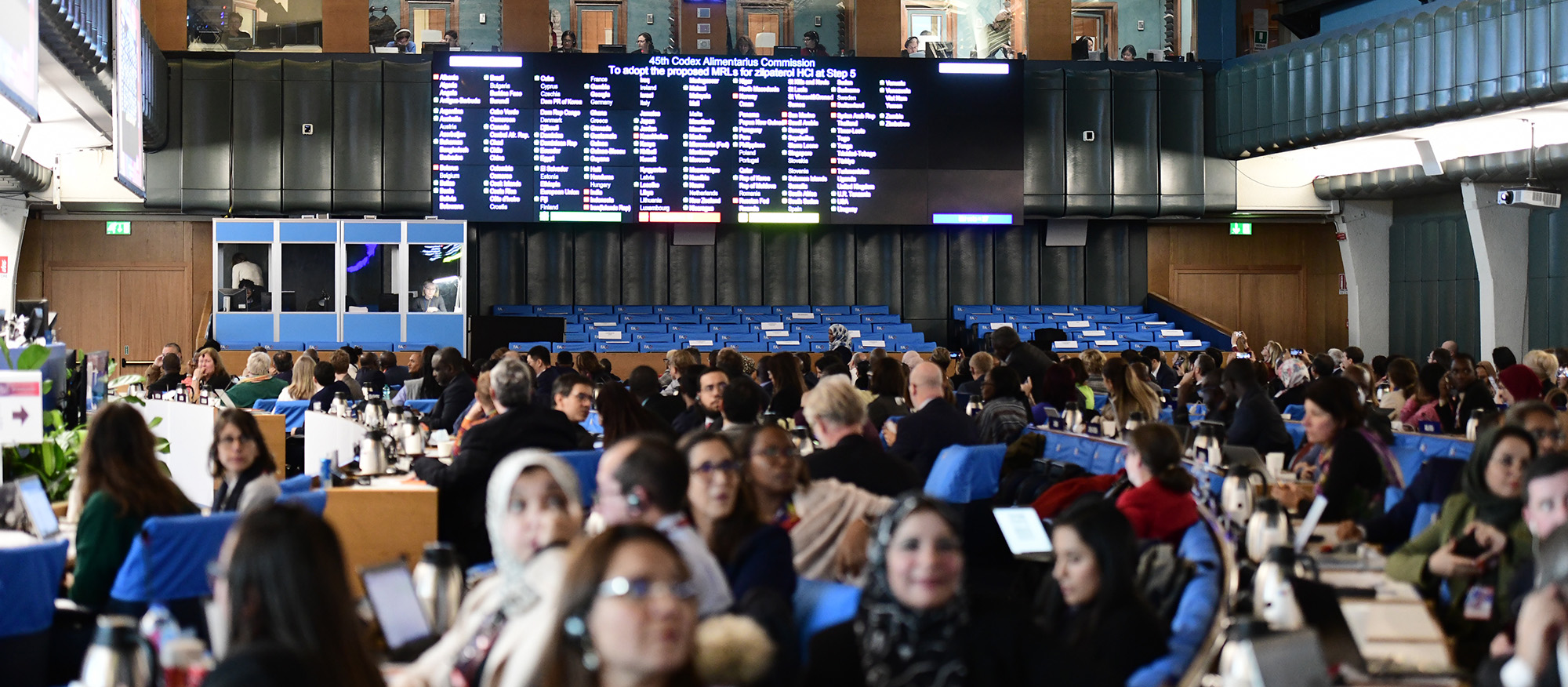
November 21 - 25, 2022, the 45th session of the Codex Alimentarius Commission (hereinafter CAC) (hereinafter CAC) was held in Rome (Italy). This is the highest body of the organization and all Codex decisions are valid only after approval by CAC. Delegates from 175 countries attended CAC45 physically and virtually. The Kazakh delegation included Deputy Chairman of the Sanitary and Epidemiological Control Committee of the Ministry of Healthcare of the RK Rakhimzhanova Maral and Kazakhstan Codex Alimentarius Team.
Kazakhstan transferred the functions of the Regional Coordinator of the CCEURO, which it has led for two terms since 2017, to the Federal Republic of Germany at this session. Codex Subsidiary Bodies’ issues, changes in the Codex Procedural Manual, the CCEXEC report, the Strategic Plan for 2020-2025 and other issues also were discussed.
A hot discussion arose during considering the Maximum Levels (MLs) for total aflatoxins in maize grain, destined for further processing; flour meal, semolina and flakes derived from maize; husked rice; sorghum grain, destined for further processing; cereal-based food for infants and young children. Kazakhstan confirmed its reservation under this document, announced at the Codex Committee. Many countries of the European and African regions have expressed reservations, because of the proposed MLs are high for the mentioned products.
The growth hormone zilpaterol hydrochloride has a special place in the work and discussion of the Committee members. Its discussion took about 2 working days of the CAC45. Given the fact that a consensus could not be reached for several years, a vote was announced. Kazakhstan voted against the approval of the maximum level proposed by the CCRVDF. According to the results of the voting, which took place in 2 stages, the standard passed to the step 5, but was not approved as the final version. Further consideration will take place at the sessions of the Commission in accordance with the procedures.
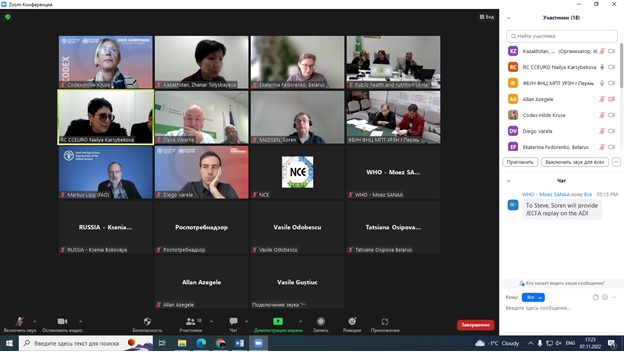
November 7, 2022, An online meeting was held regarding the CRD01 submitted to the CCEXEC’83 on growth hormone – zilpaterol. The meeting was chaired by the Chairman of the Codex Alimentarius Commission, Steve Wearne (UK). 3 Deputies Chairmen of the Commission, the Codex Secretariat, the JECFA Secretariat, FAO Headquarters, representatives of the post-Soviet countries - Kazakhstan, Russia, Belarus, Turkmenistan, Moldova, as well as the EEC, researchers of the Federal Scientific Center for Medical and Preventive Technologies for Public Health Risk Management in Rospotrebnadzor (Professor Shur P.Z., Junior Researcher Zelenkin S.E.), Codex Alimentarius Team of Kazakhstan.
Karsybekova N., CCEURO Coordinator, announced the provisions of the CRD signed by 7 countries (Kazakhstan, Kyrgyzstan, Moldova, Russian Federation, Republic of Belarus, Turkmenistan, Uzbekistan) and the EEC, requiring clarification on some provisions for the Codex and JECFA Secretariats.
Then the floor was given to Professor Shur P., who noted that the approval of the standard for the MRL of zilpaterol hydrochloride is premature.
The Republic of Belarus announced that vulnerable groups of the population, such as pregnant women, children, elderly and senile people, were not taken into account. Considering that zilpaterol has a detrimental effect on the lungs and cardiovascular system, this is a big omission.
Turkmenistan informed that hormonal agents, as growth stimulants, should be used only for the treatment of animals, but not for prevention.
Kazakhstan informed that the types of edible offals in which the study was carried out is very limited (muscles, liver, kidneys). There are no such target tissues as lungs, heart, which should have been examined in the first order, because they primarily respond to zilpaterol as target organs.
Representatives of JECFA informed that in the available publications they did not find data on modeling the chronic variant of the experiment, if someone has it, they are asked to provide it.
Markus Lipp, FAO Representative said that he would be happy to receive articles, publications on the above provisions, if any. Prof. Shur Z. promised to send an article on risk assessment and analysis.
The CAC Chairman Steve Wearne, noted that scientific approaches can be different. In general, the meeting was useful and productive. The discussion will be continued at the CAC’45.
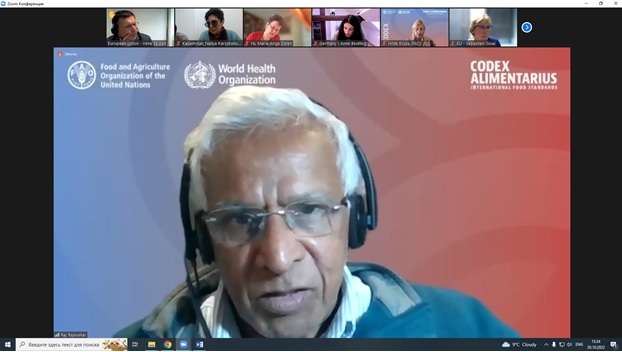
September 20, 2022, the Codex Alimentarius Team participated in a webinar on the application of the Statements of Principles concerning the Role of Science (SoP) arranged by the Codex Secretariat. The webinar speaker was the Deputy Chairman of the Codex Alimentarius Commission, Raj Rajasekar. Raj leads the subcommittee on the application of the SoP in the framework of the Executive Committee. The SoP is developed to provide a way forward in situations when there is agreement on science but differing views on other consideration.
The speaker outlined the structure and content of the SoP, 3 possible scenarios for promoting standards for the next procedural steps, options for operationalization, as well as cases when the SoP is not invoked. It was noted that significant progress had been made in most sections within the framework of the subcommittee in the Executive Committee of the Codex Alimentarius Commission.
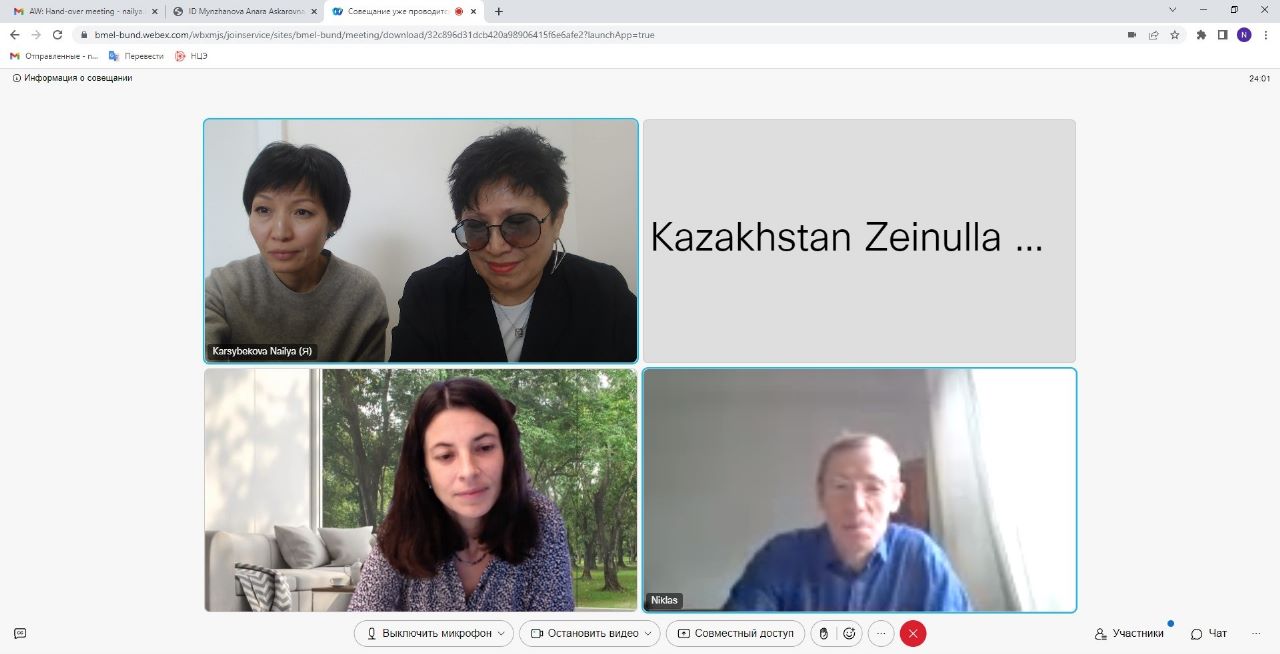
As you know, from January 1, 2023, the chairmanship of the FAO/WHO Coordinating Committee for Europe (CCEURO) of the Codex Alimentarius Commission will pass from Kazakhstan to the Federal Republic of Germany.
On October 19, 2022, an online meeting of the Codex Alimentarius Group of Kazakhstan with the Codex Contact Structure of Germany was held. The main issues included on the agenda were the lessons learned and experience gained in Kazakhstan's chairmanship of CCEURO, as well as discussion of the implementation of future plans.
Kazakhstan shared information on interaction with post-Soviet countries and their Codex of contact points for the period of two-time CCEURO chairmanship from 2017 to 2022. Approaches to improve the involvement of all CCEURO members in achieving the goals and objectives were discussed.
Germany provided information on ongoing work in preparation for the Global Forum for Food and Agriculture (GFFA) in January 2023.
The parties also discussed the vision for the implementation of the Support Measures for the implementation of the Activities to be implemented in the European Region in 2022-2023 under the Codex Strategic Plan 2020-2025, approved at the 32nd session of CCEURO.
Further collaboration with the Codex Trust Fund Secretariat, the FAO and WHO regional offices, and other Regional Coordinators and the Chair and Vice-Chairs of the Codex Alimentarius Commission was considered.
At the request of the Codex Contact Structure of Germany, Kazakhstan shared additional materials, presentations that were used during working visits to post-Soviet countries
An agreement was reached within the upcoming 45th session of the Codex Alimentarius Commission (from November 21 to December 13, 2022) to hold a physical meeting of the Codex of Contact Points of all post-Soviet countries with the Federal Republic of Germany.
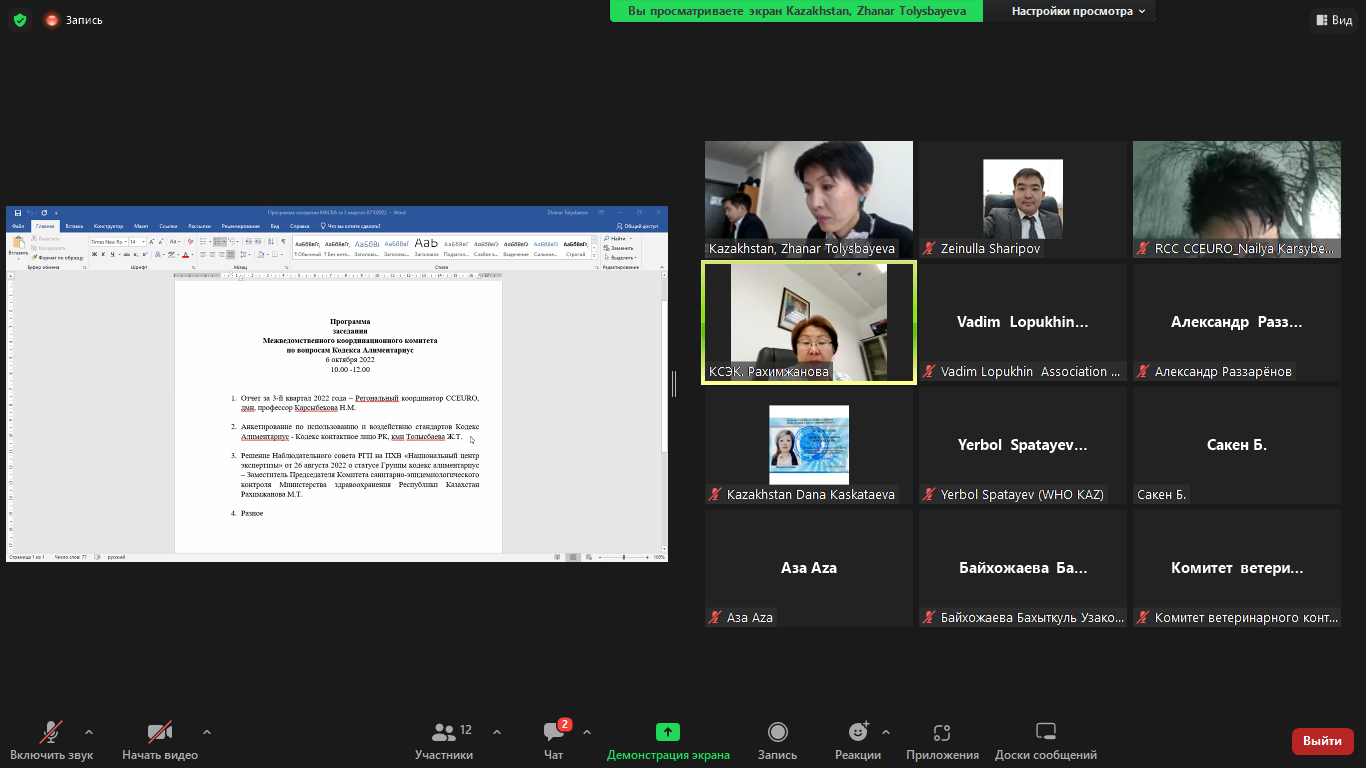
October 6, 2022, a meeting of the Interagency Coordinating Council on Codex Alimentarius issues for the 3rd quarter 2022 was held.
Doctor of Medical Sciences, Professor Karsybekova N. presented a report on the activities of the Codex Alimentarius Team for the past 3rd quarter of 2022 held at the regional and national levels.
The Codex contact point of the Republic of Kazakhstan Tolysbayeva Zh. acquainted ICC members with the questionnaire developed by the Codex Secretariat for all countries. The purpose of the survey is to explore the scope, usefulness and use of Codex standards to assess their impact. The electronic version of the questionnaire was sent to the e-mail addresses of ICC members. Answers of the questionnaire will be integrated and forwarded to the Codex Secretariat.
The Deputy Chairman of the Committee for Sanitary and Epidemiological Control of the MoH Rakhimzhanova M. spoke on the third point of the agenda. She informed that the Supervisory Board of the RSE on the REM "National Center of Expertise" adopted the work of the Team for the past period and recognized the activities within the Codex Alimentarius as a priority for the Enterprise.
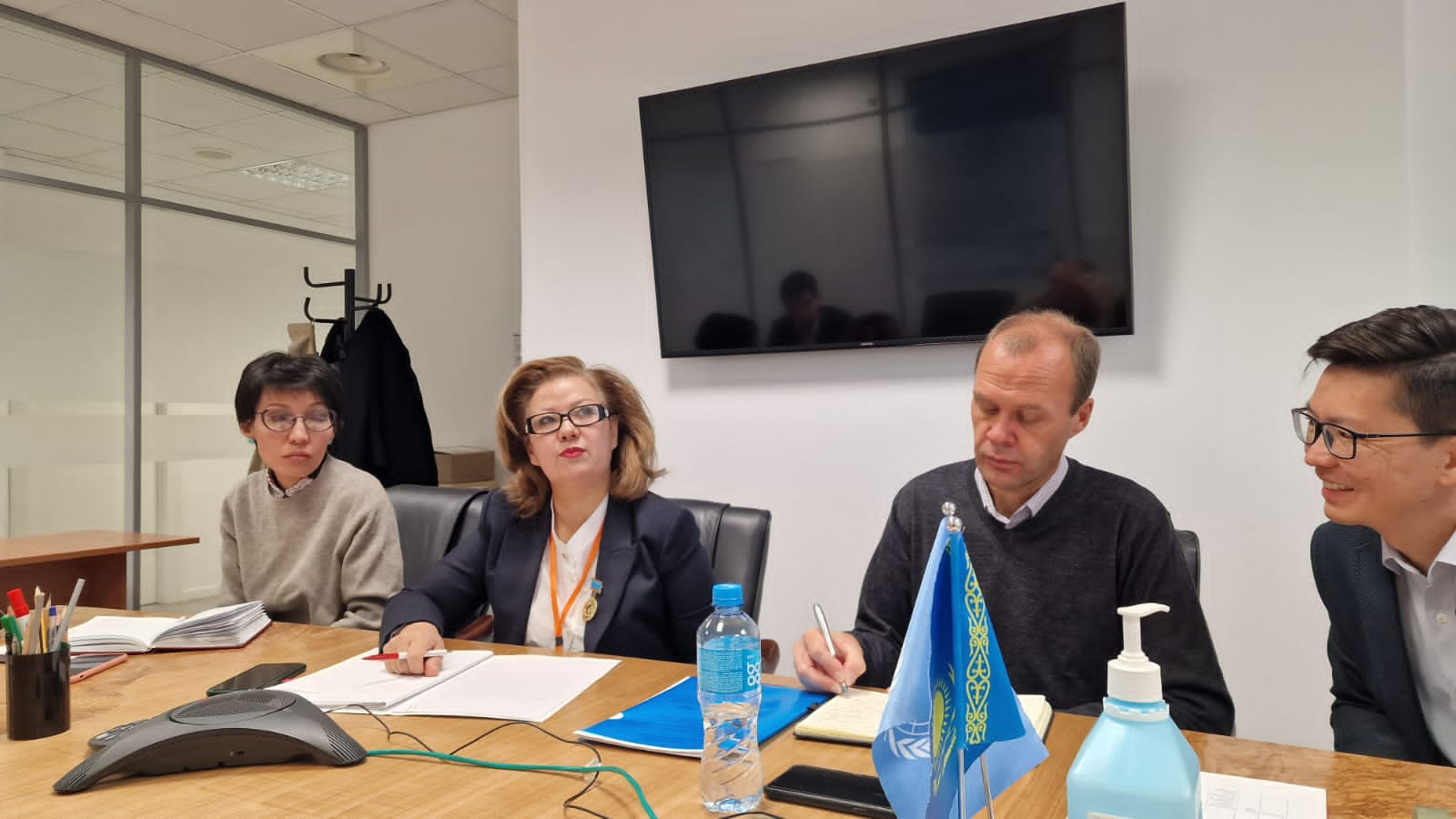
October 11, 2022. The Codex Alimentarius Team took part in a working meeting with WHO European Foods Safety Officer Peter Hoejskov. The Head of the Department for Control of Technical Regulations for Food of the CSEC of the Ministry of Healthcare of the Republic of Kazakhstan Kaskataeva D., the international expert of WHO Jeronimas Maskeliunas (Lithuania), the expert on the Common Health of the WHO country office Spataev Ye. attended this meeting.
Regional coordinator for Europe, Karsybekova N. reported about implementation of activities under the Trust Fund project for the 1st-3rd quarters of 2022. All activities were completed except of the development of the National Program on Codex Alimentarius, which was postponed to the 1st quarter of 2023. WHO Regional Office highly appreciated the Project activities.
Head of the Department for Control of Technical Regulations for Foods of the CSEC of the MoH Kaskataeva D. informed about the decision of the CSEC of the MoH to extend the validity of the Codex Alimentarius Team contracts until 2025 and about the obligations to carry out activities within the framework of the Trust Fund project in 2023. And the performance of the CA Team functions as the contact person for INFOSAN and RASFF have been defined.
In the framework of the visit of the WHO Regional Office Peter Hoejskov, a working meeting was also held in a hybrid format at the Atameken National Chamber of Entrepreneurs with food producers of the Republic of Kazakhstan, employees of NCE Atameken, the CSEC of the MoH, the post-Soviet member countries of the European Region and EEС’ CCP.
WHO international expert Jeronimas Maskeliunas presented the basics of international trade, comparative aspects of the food legislation of the EU and the EAEU.
There was a discussion of presentations, an exchange of views among member countries of the region, producers.
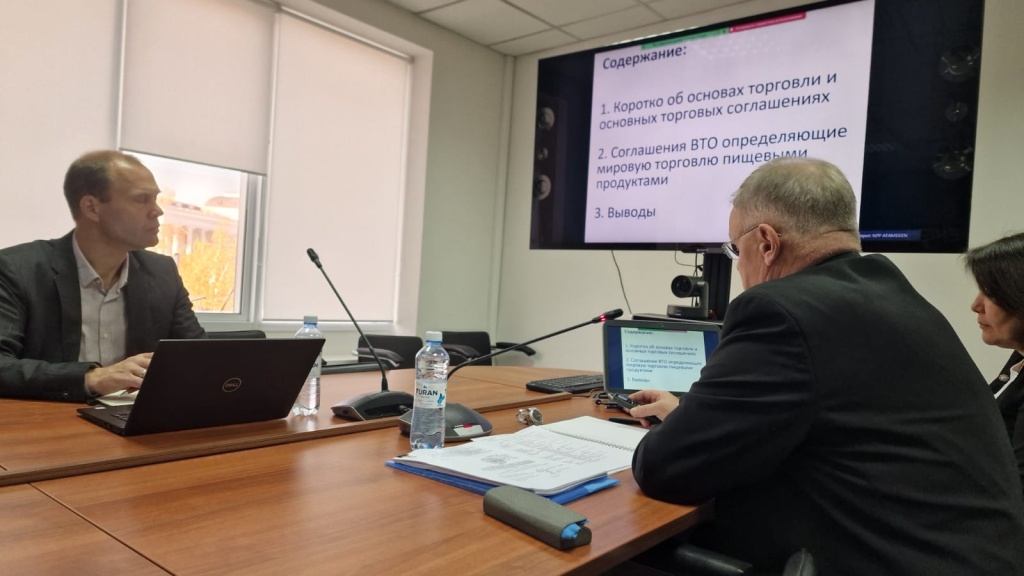
September 13, 2022 The international conference "Artificial Intelligence (AI) for detecting food falsifications" was held in Nur-Sultan, Kazakhstan.
The conference was organized by: FAO/WHO Coordinating Committee for Europe of the Codex Alimentarius Commission (CCEURO), European Center for Peace and Development of the United Nations University for Peace (ECPD), International Food Standards Certification Organization (IFSCO) with the support of the Ministry of Health of the Republic of Kazakhstan, the Committee for sanitary and epidemiological control, National Center for Expertise.
The conference was attended by 1680 participants from Europe and Asia.
The conference adopted a resolution outlining measures to promote international Codex standards through AI.
An important stage of this program will be the establishment of an AI center for the certification of the authenticity of food products and food additives based on the international standards of the FAO/WHO Codex Alimentarius. The center will operate as an international consortium of leading artificial intelligences from Europe, Asia and America, headquartered in Kazakhstan.
The Conference endorsed FAO's statements about the formidable barriers to achieve the UN Sustainable Development Goal of ending hunger by 2030. As one of the measures to prevent this huge international problem, the conference called on the owners of all artificial intelligences to hold an online conference of artificial intelligences to predict the consequences of a possible famine and measures to prevent it.
The conference also supported the Rome Сall of FAO, Google, and IBM for ethics of AI, initiated by the Vatican.
